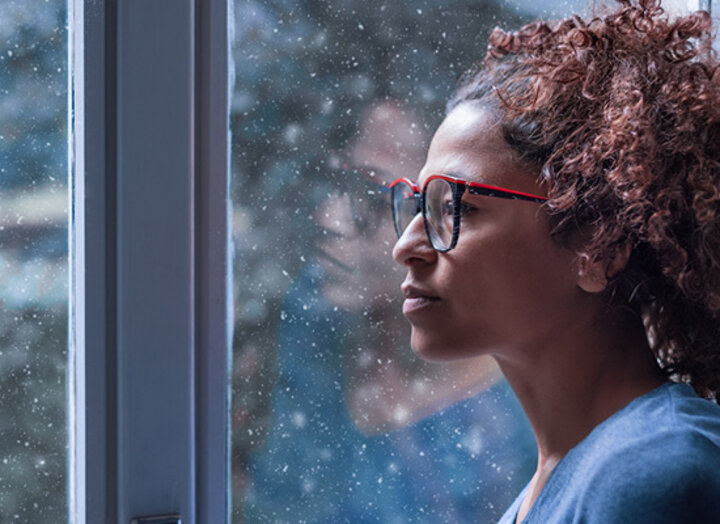
If you’ve noticed that you’re persistently unhappy when the days get shorter, you’re not alone.
As the weather turns cold and gloomy, we tend to spend less time outside and reduce our exposure to light. This change can affect the body’s natural clock (circadian rhythm) and cause you to continue producing the sleep hormone melatonin, which lowers your mood and energy.
This phenomenon is sometimes referred to as seasonal affective disorder, or SAD, a major depressive disorder that reoccurs in a seasonal pattern. However, having the winter blues does not necessarily mean clinical depression. More often, people use the term SAD to mean subclinical depressive symptoms that occur in the fall or winter.
“For people who experience a few symptoms in the winter, such as low energy or mildly lower mood, they would be good candidates for implementing lifestyle changes first,” says University Health Center psychiatrist Stephanie Sutton, MD. “Other people may have underlying depression that can exacerbate in the late fall or winter. Those patients may need intervention earlier.”
The winter blues often mimic a major depressive episode. Common symptoms include:
- Losing enjoyment in things that used to be fun
- Withdrawing from people
- Oversleeping an hour or more every day
- Appetite changes, especially craving foods that are high in carbohydrates
- Tiredness or low energy
- Difficulty thinking, concentrating or making decisions
If you experience mild seasonal symptoms, Dr. Sutton recommends trying these lifestyle changes to feel better:
- Spend time outside each day to get fresh air, even if only for a few minutes.
- Open your blinds or window shades to let in more sun.
- Plan activities with friends or family to stay socially connected.
- Get good sleep at night, but try not to oversleep, which can make symptoms worse.
- Eat a healthy diet full of fresh produce, lean protein and complex carbohydrates.
- Identify a hobby or activity you enjoy and make time on your calendar each week to do it.
- Try a new winter activity, like skiing, ice skating or sledding.
- Practice mindfulness through meditation, journaling or breathing exercises.
- Continue or establish an exercise routine.
- Try light therapy with a light lamp, which can be purchased online.
If symptoms feel like they are interfering with your daily life or have continued despite lifestyle interventions, meet with a counselor or a psychiatrist for further evaluation. To schedule an appointment with the health center psychiatry team, call 402.472.5000.